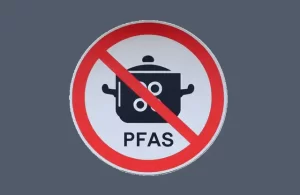US Army Research Institute developed a “universal vaccine” against COVID
- “Miracle Weight-loss Drug” Semaglutide Is Not Always Effective
- Study shows regular seafood consumption may increase risk of exposure to PFAS
- A Persistent Crisis: The Looming Specter of Drug Shortages in United States
- Rabies: The fatality rate nearly 100% once symptoms appear
- Human Brain Continues to Grow: Study Shows Increase in Size and Complexity
- CRISPR Genome Editing: From Molecular Principles to Therapeutic Applications
US Army Research Institute developed a “universal vaccine” against COVID
- Red Yeast Rice Scare Grips Japan: Over 114 Hospitalized and 5 Deaths
- Long COVID Brain Fog: Blood-Brain Barrier Damage and Persistent Inflammation
- FDA has mandated a top-level black box warning for all marketed CAR-T therapies
- Can people with high blood pressure eat peanuts?
- What is the difference between dopamine and dobutamine?
- How long can the patient live after heart stent surgery?
US Army Research Institute developed a “universal vaccine” against COVID.
According to the National Security News website, researchers at the Walter Reed Army Research Institute are expected to announce within a few weeks that they have developed a new broad-spectrum vaccine that can effectively combat the new coronavirus and all its variant strains, including Omicron, and previous SARS-like viruses.
The agency said that almost 2,500 employees have participated in the research and development of the vaccine in the past two years.
The Army Research Institute laboratory received the first DNA sequencing of the new coronavirus in early 2020.
Long ago, Walter Reid’s Institute of Emerging Infectious Diseases had decided to develop a new vaccine that would not only be effective against existing infectious disease viruses, but also against all potential mutant strains.
Recently, in a study published in “Science Translational Medicine” , the team reported the results of evaluation of this vaccine in non-human primates.

This COVID-19 vaccine called Spike Ferritin Nanoparticle ( SpFN for short ) can induce Th1 CD4 T cell helper response after being vaccinated twice at an interval of 28 days, and triggers a response to the wild type of the COVID-19 virus and a variety of mutant strains of concern (including Del Tower) of neutralizing antibodies.

The strong immune response triggered by SpFN translates into a rapid reduction in virus replication in the upper and lower respiratory tracts of animals, thereby preventing lung disease.
It is worth noting that SpFN can withstand powerful viral attacks because a large number of viruses were detected in the upper and lower respiratory tracts of the unvaccinated control group.
Despite the high virus attack, the SpFN vaccine can still protect the lower respiratory tract and prevent disease within one day after vaccination.
When the U.S. Army Research Institute released the news, Fauci, the Chief Medical Adviser of the White House, and others published an editorial in the New England Journal of Medicine , stating that in the past 20 years, four fatalities have occurred in the world.
Coronavirus outbreaks include two SARS in 2003 and 2004, Middle East Respiratory Syndrome (MERS) in 2012, and the COVID-19 epidemic that has now caused more than 800,000 American deaths.
Therefore, they called for the re-study of a universal vaccine against coronavirus.

Dr. Kayvon Modjarrad, co-inventor of the SpFN vaccine and director of the Walter Reed Institute for Emerging Infectious Diseases, said in an interview: “Our strategy is to develop a technology for a’pan-coronavirus’ vaccine to protect against multiple coronaviruses and their Variant strains provide safe, effective and lasting protection.
The first phase of human clinical trials for vaccines against Omicron and other variant strains has ended this month and has again achieved positive results. It is currently undergoing final review. . But the new vaccine still needs to be tested in the second and third phases.”
Unlike existing vaccines, the SpFN vaccine is a nanoparticle vaccine.
It uses a football-like protein with 24 faces. Each face can carry spike proteins (S Protein) to produce a broad immune response to the virus.
Modjarrad said: “For our entire team, it is very exciting to be here, and I think the same is true for the entire army.”
He said that the human trial of the vaccine took longer than expected, because the laboratory needs subjects who have not been vaccinated or infected with the new coronavirus.
Increasing vaccination rates and the rapid spread of Delta and Omicron make it more difficult to meet this condition.
Modjarrad said: “After Omicron appeared, there was no way to really get rid of this virus. You cannot avoid it. So I think that soon the world will either be vaccinated or infected.”
He said that the next step is to observe how the new pan-coronavirus vaccine interacts with people who have previously been vaccinated or who have recovered from COVID-19 pneumonia.
Modjarrad added: “We decided to take a long-term view and not only focus on the initial coronavirus, but understand how the virus will mutate and new viruses may appear in the future. Our platform and methods will enable people to do this. Get ready.”
References:
https://www.science.org/doi/10.1126/scitranslmed.abi5735
https://www.nejm.org/doi/10.1056/NEJMp2118468
https://www.army.mil/article/252890/series_of_preclinical_studies_supports_the_armys_pan_coronavirus_vaccine_development_strategy
US Army Research Institute developed a “universal vaccine” against COVID
(source:internet, reference only)
Disclaimer of medicaltrend.org
Important Note: The information provided is for informational purposes only and should not be considered as medical advice.



